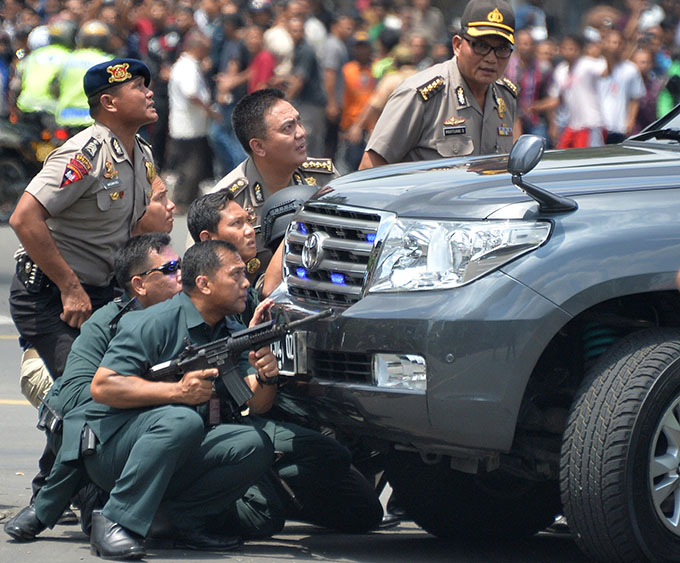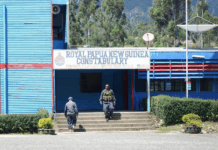
By Chris Brummit in Jakarta
Indonesian police will be able to detain suspects for six months under a significant expansion of powers contained in a revised anti-terrorism law, according to a copy of the bill.
The introduction of preventative detention is one of several new provisions drafted to strengthen the fight against extremism in Indonesia following a January 14 attack in Jakarta blamed on Islamic State militants.
The government’s bill will now be discussed by Parliament, where changes may be proposed.
The bill also gives authorities the power to strip convicted terrorists of their passports and citizenship, as President Joko Widodo tries to plug holes in old laws that were exposed by the emergence of the Islamic State.
The move is likely to be opposed by human rights groups and Muslim activists in Indonesia, which emerged in 1998 from three decades of dictatorship during which security forces were frequently alleged to have acted with impunity.
“The police don’t need more powers, just a better coordinated anti-terrorism fight,” said Wahyu Wagiman, executive director of the Institute for Policy Research and Advocacy, a human rights organisation. “If the government is not careful, this could add to the ranks of terrorists because it will create fresh grievances.”
Preventative arrests
Since the January bomb-and-gun assault in the center of the capital, the government and police have advocated for preventative arrest powers, saying they were currently unable to disrupt plans for attacks and communication with terrorist leaders in Iraq and Syria.
The country remains on the alert for another attack, Luhut Panjaitan, the coordinating minister for security affairs, said last month.
New offences under the revised bill include taking part in military training at home or abroad, communicating with someone at home and abroad about the commission of terrorism and either joining or recruiting for a declared terrorist organisation.
The clause on preventative detention says authorities have the power to hold terrorism suspects for six months for the purposes of deradicalisation, international cooperation, investigation and prevention. Currently authorities can hold suspects for a week before formally charging them.
“There are some sensible additions such as criminalising membership of a terrorist group and paramilitary training,” said Adam J. Fenton, a senior researcher at the Center for Radicalism and Deradicalisation Studies in Indonesia.
“But some will be controversial and may meet some resistance when they are debated in Parliament.”
Dwi Ria Latifa, a parliamentarian on the commission that will oversee the passage of the bill, said lawmakers were preparing to begin discussing it. She declined to comment on its contents because she had yet to study it.
The government implemented anti-terrorism laws in the immediate aftermath of the 2002 Bali bombings. It has been talking about the need to revise them ever since, but the process was given impetus by the January attacks.















































